MercoPress. South Atlantic News Agency
Tag: Alberto Fernandez
-
Thursday, September 5th 2019 - 09:57 UTC
Argentine markets rebound, despite thousands of protestors in the streets
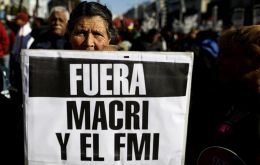
Argentine markets held steady on Wednesday, even as thousands of protesters took to the streets to demonstrate against the government of President Mauricio Macri and a darkening economic outlook in the recession-hit South American country.
-
Tuesday, September 3rd 2019 - 09:54 UTC
Argentine bonds fall to record lows; long queues to withdraw dollar funds
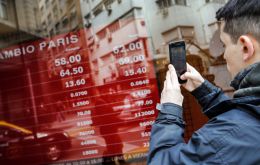
Argentine bond prices fell to record lows on Monday and the official and black-market pesos diverged after the country imposed capital controls in a bid to stem a currency rout that is sharpening the risk of default.
-
Tuesday, September 3rd 2019 - 09:47 UTC
Argentine opposition candidate Fernandez visiting Spain and Portugal

The leader of the Argentine opposition and favorite to become the next president in October's election is currently spending time in Spain and Portugal where he has an academic, political and rest and recover agenda, which begins this Tuesday at the Camilo Cela José University with a conference on politics and voters, “a perspective from the electoral campaigns”.
-
Monday, September 2nd 2019 - 09:50 UTC
IMF supports Argentina and its temporary currency controls
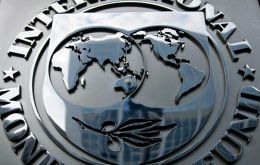
The International Monetary Fund said it will stand by Argentina after the government authorized currency controls on Sunday in an about-face by President Mauricio Macri, who had previously lifted many protectionist practices of his predecessor, Cristina Fernandez de Kirchner.
-
Saturday, August 31st 2019 - 17:54 UTC
The “Amazon fires of uncertainty” in Argentina: can they get worse?

Argentina’s battered bonds were driven still lower on Friday after a credit rating cut from Standard & Poor’s triggered automatic selling mechanisms at big pension funds. Risk spreads blew out to levels not seen since 2005 while the local peso currency extended its year-to-date slide to 36%, forcing renewed central bank market intervention and intensifying worries about Argentina’s ability to honor its dollar-denominated debt.
-
Friday, August 30th 2019 - 09:39 UTC
Fernandez meets Argentine farmers leaders and proposes a fresh start
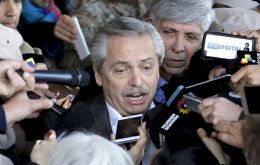
The man widely expected to become Argentina’s next president asked farmers from the country’s key grains sector on Thursday to put aside their bitter differences with the government of his running mate, former President Cristina Fernandez de Kirchner, and move forward with him.
-
Thursday, August 29th 2019 - 10:50 UTC
Argentina announces it will “re profile” IMF loan and sovereign bonds' maturities
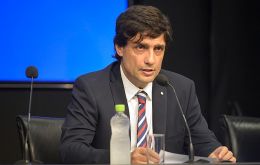
Argentina will negotiate with holders of its sovereign bonds and the International Monetary Fund to extend the maturities of its debt obligations, as a way of ensuring the country's ability to pay, Treasury Minister Hernan Lacunza said on Wednesday.
-
Thursday, August 29th 2019 - 10:16 UTC
Argentina sells US$ 367m reserves to prop the Peso; country risk at another record level, 2.125 points
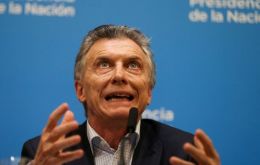
Argentina’s peso was battered on Wednesday as the central bank sold US$ 367 million of its dollar reserves in a second consecutive day of heavy intervention aimed at controlling the currency’s fall. Likewise the country risk rose 135 basis points to 2,125, its highest in 14 years, before partially recovering, according to the JP Morgan Emerging Markets Bond Index Plus.
-
Thursday, August 29th 2019 - 09:49 UTC
IMF held “productive talks” in Argentina and is analyzing the impact of the latest debt operation announced
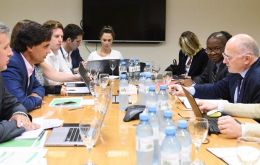
The International Monetary Fund is analyzing the impact of a new debt plan announced by Argentina’s Treasury Ministry on Wednesday, an IMF spokesman said. IMF staff understands that Argentina has taken “important steps” to address liquidity needs and safeguard reserves, the statement by IMF spokesman Gerry Rice said.
-
Wednesday, August 28th 2019 - 09:59 UTC
Macri anticipates that Argentina's inflation will accelerate to 3% in August; country risk reaches 1.990 points

Argentine President Mauricio Macri said that monthly inflation would accelerate to 3% in August following a slump in the peso, as the central bank intervened heavily in the market on Tuesday to prop up the local currency.
